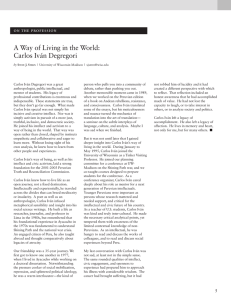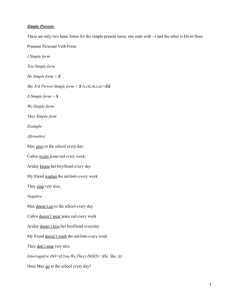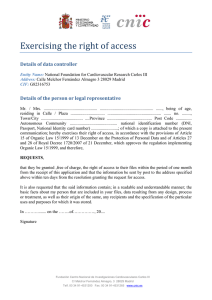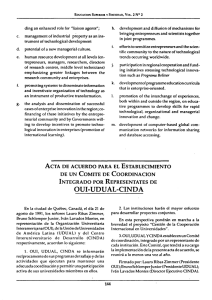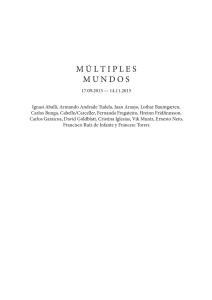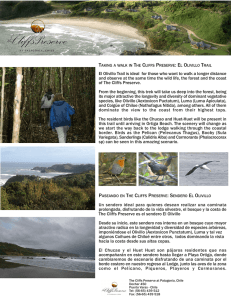Remembering Carlos Iván Degregori - Latin American Studies Association
Anuncio
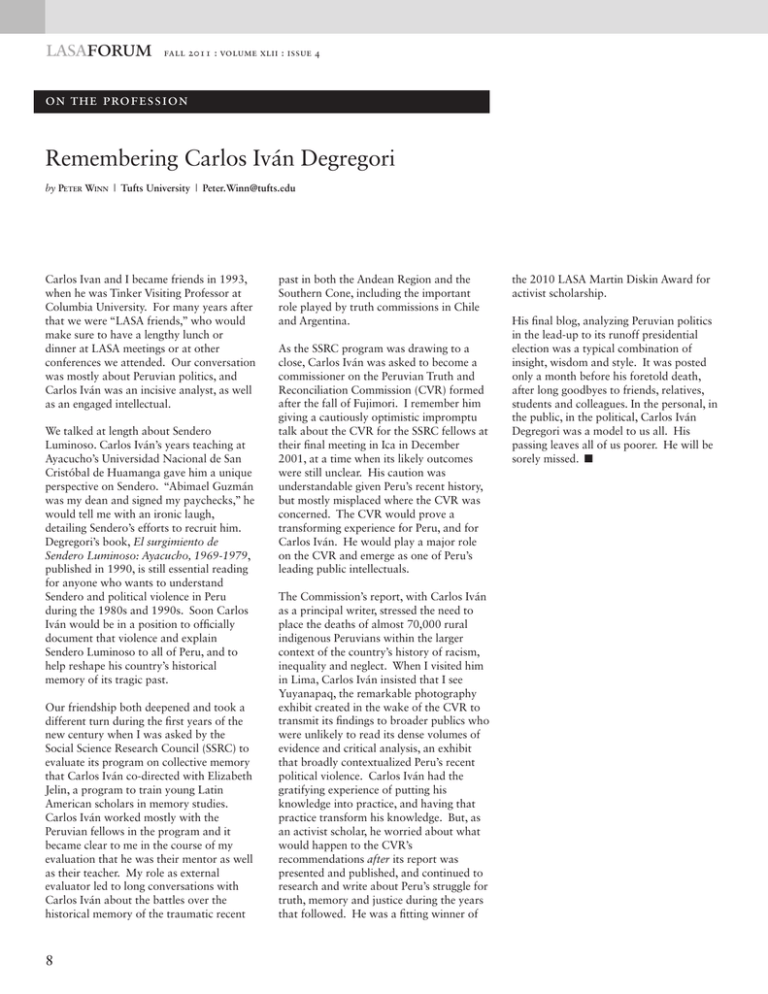
lasaforum fall 2011 : volume xlii : issue 4 on the profession Remembering Carlos Iván Degregori by Peter Winn | Tufts University | Peter.Winn@tufts.edu Carlos Ivan and I became friends in 1993, when he was Tinker Visiting Professor at Columbia University. For many years after that we were “LASA friends,” who would make sure to have a lengthy lunch or dinner at LASA meetings or at other conferences we attended. Our conversation was mostly about Peruvian politics, and Carlos Iván was an incisive analyst, as well as an engaged intellectual. We talked at length about Sendero Luminoso. Carlos Iván’s years teaching at Ayacucho’s Universidad Nacional de San Cristóbal de Huamanga gave him a unique perspective on Sendero. “Abimael Guzmán was my dean and signed my paychecks,” he would tell me with an ironic laugh, detailing Sendero’s efforts to recruit him. Degregori’s book, El surgimiento de Sendero Luminoso: Ayacucho, 1969-1979, published in 1990, is still essential reading for anyone who wants to understand Sendero and political violence in Peru during the 1980s and 1990s. Soon Carlos Iván would be in a position to officially document that violence and explain Sendero Luminoso to all of Peru, and to help reshape his country’s historical memory of its tragic past. Our friendship both deepened and took a different turn during the first years of the new century when I was asked by the Social Science Research Council (SSRC) to evaluate its program on collective memory that Carlos Iván co-directed with Elizabeth Jelin, a program to train young Latin American scholars in memory studies. Carlos Iván worked mostly with the Peruvian fellows in the program and it became clear to me in the course of my evaluation that he was their mentor as well as their teacher. My role as external evaluator led to long conversations with Carlos Iván about the battles over the historical memory of the traumatic recent 8 past in both the Andean Region and the Southern Cone, including the important role played by truth commissions in Chile and Argentina. As the SSRC program was drawing to a close, Carlos Iván was asked to become a commissioner on the Peruvian Truth and Reconciliation Commission (CVR) formed after the fall of Fujimori. I remember him giving a cautiously optimistic impromptu talk about the CVR for the SSRC fellows at their final meeting in Ica in December 2001, at a time when its likely outcomes were still unclear. His caution was understandable given Peru’s recent history, but mostly misplaced where the CVR was concerned. The CVR would prove a transforming experience for Peru, and for Carlos Iván. He would play a major role on the CVR and emerge as one of Peru’s leading public intellectuals. The Commission’s report, with Carlos Iván as a principal writer, stressed the need to place the deaths of almost 70,000 rural indigenous Peruvians within the larger context of the country’s history of racism, inequality and neglect. When I visited him in Lima, Carlos Iván insisted that I see Yuyanapaq, the remarkable photography exhibit created in the wake of the CVR to transmit its findings to broader publics who were unlikely to read its dense volumes of evidence and critical analysis, an exhibit that broadly contextualized Peru’s recent political violence. Carlos Iván had the gratifying experience of putting his knowledge into practice, and having that practice transform his knowledge. But, as an activist scholar, he worried about what would happen to the CVR’s recommendations after its report was presented and published, and continued to research and write about Peru’s struggle for truth, memory and justice during the years that followed. He was a fitting winner of the 2010 LASA Martin Diskin Award for activist scholarship. His final blog, analyzing Peruvian politics in the lead-up to its runoff presidential election was a typical combination of insight, wisdom and style. It was posted only a month before his foretold death, after long goodbyes to friends, relatives, students and colleagues. In the personal, in the public, in the political, Carlos Iván Degregori was a model to us all. His passing leaves all of us poorer. He will be sorely missed. n
